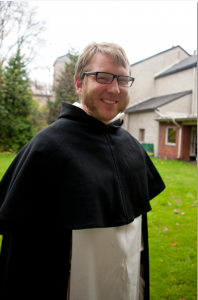Lesninger for 25. søndag i kirkeåret år A
“For my thoughts are not your thoughts,
nor are your ways my ways, says the LORD” (Isaiah 55:8)
This pretty much summons up todays parable, emphasising two different logics in action. One is about the human instinct, the other is how God sees it.
The first logic is about the perpetual human temptation to measure, to weigh, to judge. We easily say that we do not intend to do so, and just as easily, we do what we claim not to do. For the workers in the vineyard, suspicion arises.
For the early ones arriving in the vineyard we say fine, they are doing the right thing, taking on work, ready from the first hour of the day. But who are those workers coming late? Why did they not show up with the others? There must be something wrong? Health issues? Laziness? Sixth hour? Ninth hour? Eleventh hour?? That group must be the social outcasts, those who don’t fit in.
What names would they get in our society? The dude, the bum, the losers? The drug addicted? The Rom people? The unemployed? The uncunning? And all the others who do not merge into our main stream society… We easily place them in an inferior spot, almost without thinking.
 In a self-biographical book called “Adam, Gods beloved” the author, Henri J. M. Nouwen, is given the charge of taking care of a strongly handicapped person at an health care institution. Adam is not able to speak, barely to move his head, and can really only communicate through his eyes. It begins by the typical feeling of “taking care of” the weak one. However, the relation leads Nouwen to a painful, but most fruitful, insight into himself:
In a self-biographical book called “Adam, Gods beloved” the author, Henri J. M. Nouwen, is given the charge of taking care of a strongly handicapped person at an health care institution. Adam is not able to speak, barely to move his head, and can really only communicate through his eyes. It begins by the typical feeling of “taking care of” the weak one. However, the relation leads Nouwen to a painful, but most fruitful, insight into himself:
“I realized that I was becoming like Adam. He had nothing to be proud of. Neither had I. He was completely empty. So was I. He needed full-time attention. So did I. I found myself resisting this “becoming like Adam.” I did not want to be dependent and weak. I did not want to be so needy. Somewhere though I recognized that Adam’s way, the way of radical vulnerability, was also the way of Jesus.”
Henri J. M. Nouwen: “Adam, Gods beloved”
This is the key to the divine logic. The Son of God identifies himself with the poorest, the weakest, the most troubled. And thereby with all of humanity. God embraces us all! Jesus walks the way of “radical vulnerability”, ending abandoned on a cross, with only a cry from his lips.
There is a before and after this incident. We have been given the grace of living in these last times. Christ has showed us that there is no inferior any more. Because Jesus has allied himself with the poorest of the poor. To reach for the highest is to humble oneself.
When we walk up the aisle to receive the communion, we look pretty much like the workers in the vineyard. Because here, we are all equal, and we all receive the same “wage”. Rich or poor in any sense, we all receive the same reward: Jesus Christ who shares himself in solidarity with humanity.
It is a mind-blowing, Christocentric perspective that deconstruct our human and self-justifying structures. This is what John Chrysostom is expressing in his Pascal homily written in about year 400. Let us listen to him, as we rejoices in the gifts we have been given, and let us work on ourselves, so we may reconstruct our interior, building a bond of love and solidarity with all that is inferior…
If anyone has labored from the first hour, let them today receive the just reward.
If anyone has come at the third hour, with thanksgiving let them feast.
If anyone has arrived at the sixth hour, let them have no misgivings;
for they shall suffer no loss.
If anyone has delayed until the ninth hour,
let them draw near without hesitation.
If anyone has arrived even at the eleventh hour,
let them not fear on account of tardiness.
For the Master is gracious and receives the last even as the first;
He gives rest to him that comes at the eleventh hour,
just as to him who has labored from the first.
He has mercy upon the last and cares for the first;
to the one He gives, and to the other He is gracious.
He both honors the work and praises the intention.
Enter all of you, therefore, into the joy of our Lord, and,
whether first or last, receive your reward.
(Pascal homily of John Chrysostom)

